Borage or Borago officinalis hails from the flowering plant family Boraginaceae. Also known as starflower, it is native to eastern Mediterranean region. This annual plant has edible leaves, and it is grown for this purpose in many parts of Europe, North America, Asia, and Great Britain. For hundreds of years, borage has been popular among herbalists, who use this plant for medicinal purposes. The herbalists deem it a magical plant for the treatment of several disorders, such as gastrointestinal, respiratory, and cardiovascular disorders.
Borage plant is consumed as either a dried herb or a fresh vegetable. It tastes like cucumber when eaten as a fresh vegetable and is often consumed as a salad or garnish. The flower has a sweet honey-like taste and is used for the decoration of desserts and cocktails.
Historically, people have also used this plant to relieve cramps, colic, and diarrhea. Its other uses include treating asthma, bronchitis, and kidney/bladder disorders. Apart from the medicinal uses and culinary purposes, borage is also commercially cultivated for the extraction of borage seed oil. The oil offers relief in skin disorders, prevents heart disease, and provides essential fatty acids for the development of preterm infants.
What is borage oil?
Borage oil is a golden yellow oil that has a light, pleasant odor. It is a natural supplement and contains high levels of gamma-linoleic acid (GLA), a strong anti-inflammatory fatty acid present in some plant oils. This fatty acid cannot be obtained from the human diet in high amounts, so people resort to supplements to get its benefits.
As is the case with its plant, Borage oil is becoming popular as a natural anti-inflammatory supplement. It contains one of the highest amounts of GLA, i.e., around 23 percent, as compared to other seed oils.
Given the anti-inflammatory and antioxidant properties of borage oil, it helps treat a variety of short and long-term illness. Borage oil alleviates the symptoms of health conditions like premenstrual syndrome, osteoporosis, skin disorders, menopause symptoms, stress, diabetes, respiratory distress, alcoholism, and inflammation.
Borage oil also goes by other names like Glandol ®, n-6 polyunsaturated fatty acids (PUFA), n-6 PUFA, and starflower oil.

What is gamma-linolenic acid (GLA)?
GLA is an essential omega-6 fatty acid having anti-inflammatory properties. Many benefits of borage oil are just because of this fatty acid. GLA helps maintain skeletal health, brain function, reproductive health, and fully functioning metabolism. It is also pivotal for skin health and hair growth. That is why borage oil is used as an ingredient in skin and hair care products.
The human body uses this compound to produce prostaglandins, which is a hormone-like substance that helps regulate the immune system. As the human body cannot produce GLA, it has to be obtained from outside sources like supplements or natural substances that contain it in abundance. People also use it as a medicine because of its various health benefits.
Although other forms of omega-6s, like those present in seeds or nuts, can convert into GLA to some extent, it is more effective to take GLA directly. Borage oil is an excellent alternative to GLA supplements. It supplies ample amounts of GLA and does not require many capsules to be taken every day. Moreover, consuming borage oil as a source of GLA is cost-effective and has a lower risk of side effects.
Chemical composition of borage oil
Borage oil contains 17 to 28 percent of the gamma-linolenic acid (GLA), which makes it the richest known source of GLA. The oil also contains the following fatty acids:
- Palmitic acid – 10 to 11 %
- Stearic acid – 3.4 to 4.5 %
- Oleic acid -16 to 20 %
- Linoleic acid – 35 to 38 %
- Eicosenoic acid – 3.5 to 5.5 %
- Erucic acid – 1.5 to 3.5 %
- Nervonic acid – 1.5 %
Notably, it also contains small amounts of liver-toxic Pyrrolizidine Alkaloids (PAs). However, they often get removed during the processing of oil.
Rosmarinic acid, synaptic acid, and synergic acid are also a part of borage’s extract. These compounds are another reason for the excellent antioxidant properties of borage oil.
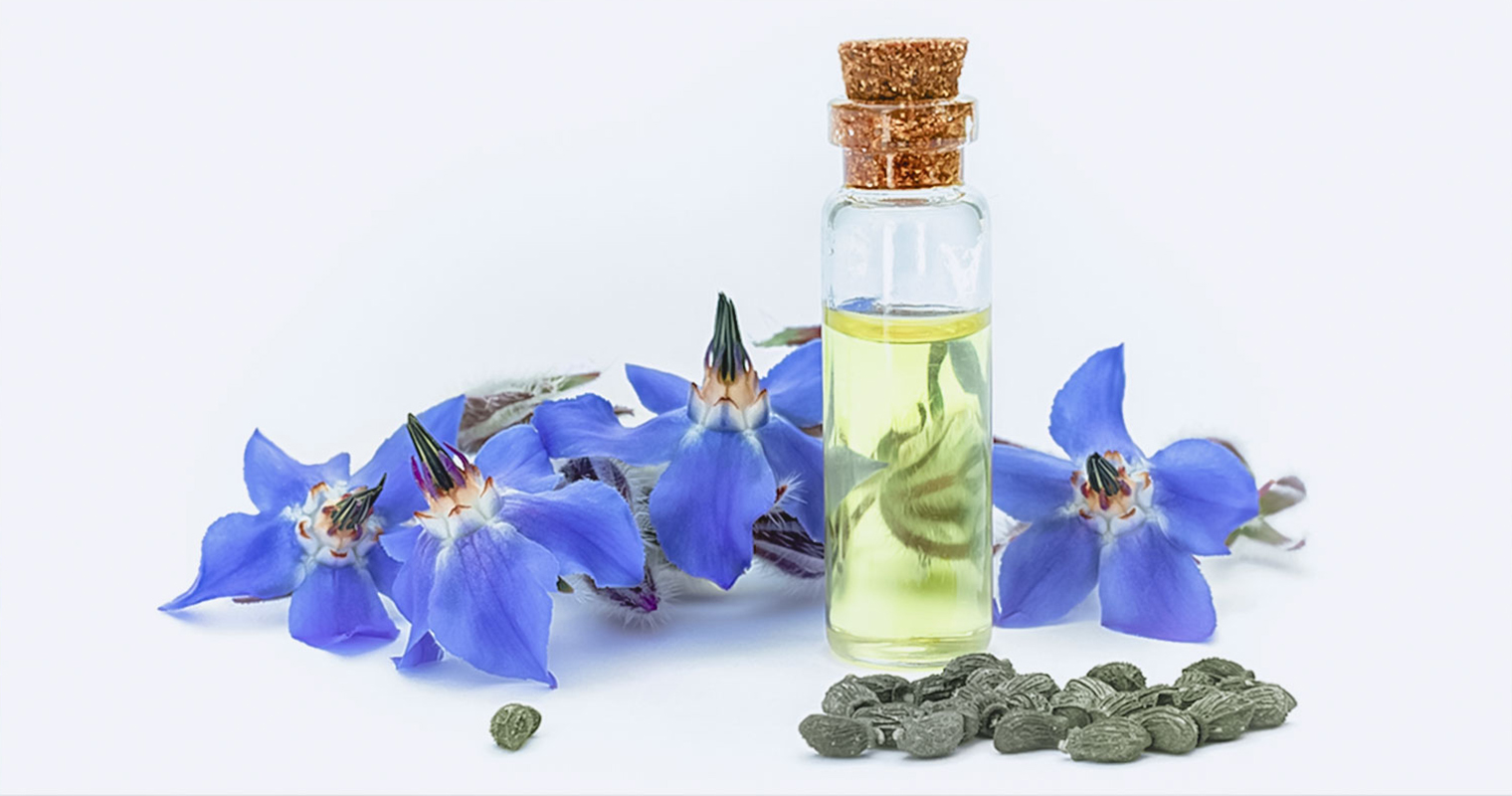
Benefits of borage oil
Borage has been used for multiple purposes since its discovery. Borage seed oil, just like the plant, offers a wide range of benefits to human health. Apart from serving several medicinal purposes, borage seed oil is an excellent choice to improve skin health and hair growth. Benefits of borage oil are mentioned below in detail.
It helps fight cancer
Borage seed oil has antioxidant properties that help fight cancer. The oil is loaded with GLA that has the capability to prevent the growth of cancer cells.
Multiple laboratory studies have shown that both GLA and borage oil undergo cytotoxic activities that drastically reduce the life span of toxic cells while increasing the lifetime of the healthy host.
Many experts recommend borage oil supplementation for DNA protection and the prevention of cancer. It alleviates the underlying oxidative genetic damage that is responsible for inflammation and disease development.
Although there is insufficient research regarding the effect of borage oil on people with cancer, a study conducted in 2012 found that GLA has the tendency to shrink the growth of pancreatic cancer cells in mice. While the effect is not replicated in human studies, it is still promising.
It has anti-Inflammatory properties
GLA, the main component of borage oil, is a type of polyunsaturated fatty acids (PUFA) that is beneficial for overall human health. It is known to have a positive effect on anti-aging mechanisms and inflammation. Omega-6 PUFAs present in borage seed oil are vital for fighting disease.
These PUFAs regulate the release of molecules responsible for the inflammatory responses of the body. These molecules include prostaglandins, cytokines (called interleukins), and leukotrienes.
Not only that the GLA controls immune responses, but it also affects the positive cell death, i.e., apoptosis, for toxic cells. After it has entered the body, GLA is converted into a substance named dihomo- γ-linolenic acid (DGLA), which acts as a facilitator for prostaglandins and leukotriene compounds produced by the immune system.
DGLA is believed to treat inflammation because it obstructs leukotriene synthesis that raises autoimmune reactions and thrombotic (related to blood clot formation) effects. That is why borage oil is recommended for lowering symptoms of different inflammatory and age-related disorders like atopic eczema, arthritis, and respiratory conditions. When taken with anti-inflammatory omega-3 fatty acids, borage oil gives even better results.
Despite its importance, the human body cannot produce GLA and has to rely on outside sources to obtain it. Once the breastfeeding period of a child is over, he/she takes very low doses of this beneficial substance throughout the remaining life. This deficiency can easily be filled by consuming borage oil, as it is the most GLA-rich seed oil that exists.
It can alleviate the symptoms of arthritis
Borage oil offers positive results in the treatment of rheumatoid arthritis, which is an autoimmune disorder characterized by inflammation of the lining of the joints. A research review published in 2000 indicates that borage oil can alleviate the symptoms of the said disorder. While the majority of the findings about the effectiveness of this oil are based on the test tube and animal research, many small studies have shown that it can relieve tenderness and swelling in people having rheumatoid arthritis.
GLA in borage oil is a natural remedy for rheumatoid arthritis pain. When combined with other anti-inflammatory drugs or conventional painkillers, GLA can do wonders. Evidence has also shown that some people experience relief in joint pain, severity, and swelling after as much as six weeks of regular borage oil treatment. In fact, research indicates that fatty acids from borage oil, when combined with fish oil, can alleviate the arthritis symptoms better than any other seed oil.

It can fight eczema and skin disorders
Borage oil is popular for skin-related uses. As it is a strong anti-inflammatory agent, it can treat skin disorders like eczema effectively. The oil’s main component, GLA, has been known to rectify deficiencies in skin lipids (oil) caused by low levels of delta-6-desaturase activity. When the skin is unable to produce sufficient protective oils, the immune system becomes impaired and dysregulated. This results in increased inflammation and certain immune responses leading to skin flare-ups, including those occurring in eczema.
The GLA-rich borage oil plays the role of a natural eczema remedy for people with less than average fatty acids. The study on capabilities of borage oil on eczema has given mixed results. Not every study has proven that this oil can improve eczema in the majority of patients. Yet, anecdotal evidence suggests that many people have responded positively to borage oil treatment as compared to other remedies. They have experienced noteworthy improvements after using borage oil.
Multiple studies have found that the daily intake of 720 milligrams of GLA for two months can render drastic improvements in the health of the skin barrier.
It stimulates growth and development
Some research shows that premature babies who receive infant formula containing borage oil show better rates of development and growth. Use of borage oil with omega-3 supplements stimulates the development of the central nervous system while reducing the risks linked to premature births.
Multiple studies published in Food and Chemical Toxicology have shown that feeding GLA of borage oil to rats for 90 days resulted in significant improvement in growth rate. Research in rats and mice indicates that the GLA derived from borage oil is an excellent source for increasing the levels of long-chain n-6 FA in the developing brain.
It helps treat respiratory infections
Borage oil boosts the function of the lungs. It is known to improve the condition of people having respiratory infections and disorders like acute respiratory distress syndrome (ARDS). Borage oil can fight inflammation that may worsen the respiratory symptoms.
Taking borage oil supplements in capsule form can accelerate the healing time linked to coughs, common cold, and flu. These supplements can cut down the time spent taking medicines or in hospital.
Borage oil, when consumed by mouth and combined with eicosapentaenoic acid (EPA) can help a lot with ARDS. It can lessen the need for taking medicines over a prolonged period of time to relieve respiratory syndrome.

It can help reduce weight and fat accumulation
Borage oil can somehow help in the attempts of losing weight. There is evidence that GLA of borage oil results in less body fat accumulation than many refined vegetable oils. Especially, GLA leads to brown fat accumulation and produces lesser white fat. That is a good thing because scientists are of the view that lean people have more brown fat as compared to obese or overweight people. Moreover, they believe that brown fat tends to act more like a muscle than white fat.
A 2000 study in rats revealed that GLA tends to prevent white fat accumulation. Moreover, it found that dietary GLA slows down body fat accumulation by increasing gene expressions that are in control of adipose (fat) tissue growth.

Uses of borage oil
For 1500 years, borage has been serving multiple purposes, and so does its extract – borage oil. It acts as a functional medicine for a wide range of health issues. It is a magical anecdote to the skin and hair-related problems. Moreover, this oil can be used for cooking too, but it should not be heated for long. Here are some important uses of borage oil.
Skin care
Borage oil is used as an ingredient in many skincare products, and that too for a good reason.
It is loaded with substances that are good for skin health. The uses of borage oil for skin health are mentioned below.
Anti-aging product
Borage oil is rich in linoleic acid that enables the skin to retain or regain its elasticity. It helps prevent stretch marks and reduce their appearance while delaying the skin-aging process. The abundant GLA in it is excellent for mature skin, as it is a natural moisturizer.
Adding a few drops of borage oil to the day and night creams can increase their moisturizing and stimulating powers. It will activate the skin’s hydration and help renew the skin cells. That is why borage oil is a key ingredient in many anti-aging products.
Moreover, it is good for sensitive skin. It has a soothing effect while having the power to repair the irritations and relieve itchiness caused by external factors.
Remedy for acne
The GLA in borage oil has strong anti-inflammatory properties and thus can help in treating acne. Taking borage oil for acne is recommended both orally as well as topically by several herbal practitioners. The anti-inflammatory properties of GLA-rich oil also helps treat skin conditions like rosacea. The oil can also reduce skin reddening linked to the condition.
One Korean study indicates that GLA, along with omega-3 fatty acids, can help with the treatment of acne vulgaris. According to some sources, borage oil may also help with the treatment of keratosis pilaris, another skin condition that creates rough patches and acne-like bumps on the skin.

Remedy for eczema
While borage oil improves skin health in general, it can also treat dermatitis and eczema. That is because of its ability to correct deficiencies in skin lipids. This oil can also help improve psoriasis. Just apply the oil on the affected area and leave it overnight. Rinse it with cold water in the morning.
How to use borage oil to treat eczema
At BLACK PAINT, we have created skincare products using borage oil and other ingredients that have a proven role in improving symptoms of eczema. Following are our hand-picked borage oil products:
BLACK PAINT soap is a deep-pore cleanser. It contains borage oil along with other ingredients that keeps your skin hydrated while extracting the blackheads and clearing the impurities. Because of the gamma-linolenic acid in borage oil and its anti-inflammatory properties, Black PAINT soap helps alleviate symptoms of eczema and reduces the impact of microbial activity in the pores. It reduces lipid deficiencies – responsible for skin flare ups in eczema – in the skin.
Here is how to use this product to get the maximum benefit:
- Soak the soap in warm water. Wait till its surface melts
- Apply it on to the face directly. Avoid the eye area
- Massage for up to 40 seconds and rinse
- Let the soap dry in a humid-free environment
In order to get optimum results, use the soap with BLACK PAINT Black Konjac Sponge and Rose Water.
Oil Water is a facial essence containing borage oil and damask rose as an ingredient. Because of the borage oil content, this product has anti-inflammatory effects that will help your eczema. Moreover, it will keep your skin hydrated, soft and supple, reducing the dry rash typically seen in eczema. Better skin hydration also reduces flare ups normally seen in eczema. It can also help reduce the effects of clogged pores because of its antioxidant properties.
You can try this product using these steps:
- Shake the product for at least 20 times after ensuring that the cap is on
- Press the pump two times to get around the 50-cent size of the oil water on to the palm
- Massage onto face in 2-3 applications
German Blue is an anti-aging moisturizing facial serum with borage oil in it. As the name suggests, it slows down the aging process because of its oil content. Germal blue helps retain or renew the elasticity of skin. However, this product gives more than just the anti-aging benefits. Borage oil in german blue is rich in linolenic acid, which reduces the skin irritation and relieves itchiness usually found in eczema.
Here are the steps to use German Blue:
- Mix two drops with two pumps of BEST WATER
- Apply on face and massage. Focus on areas that require attention
- You can use this product alone as well, but combining it with Best Water increases absorption
- Use it day and night
Other than for eczema, borage oil products are also an excellent choice for improving other skin conditions, such as acne, dermatitis, keratosis pilaris, rosacea, etc. Borage oil products can also be used as part of anti-aging skin care routine.
Hair care
Borage oil is loaded with exceptional nutrients, especially those that make the hair strong and sleek. The oil is rich in ceramide—a lipid molecule having adhesive properties. When this molecule comes in contact with hair, it adheres to the outside and forms a clear, protective outer layer. It locks moisture and natural proteins that prevent dehydration and save the strands from cracking and damages.
Moreover, the anti-inflammatory GLA in borage oil fights with scalp irritations and deals with circulation issues disrupting follicles. Many doctors recommend GLA treatments for women with symptoms of female pattern baldness.
Given the many benefits, it is common for shampoos and conditioning masks to include borage oil for hair growth and improved hair health. In fact borage oil is a key ingredients in several hair care products.
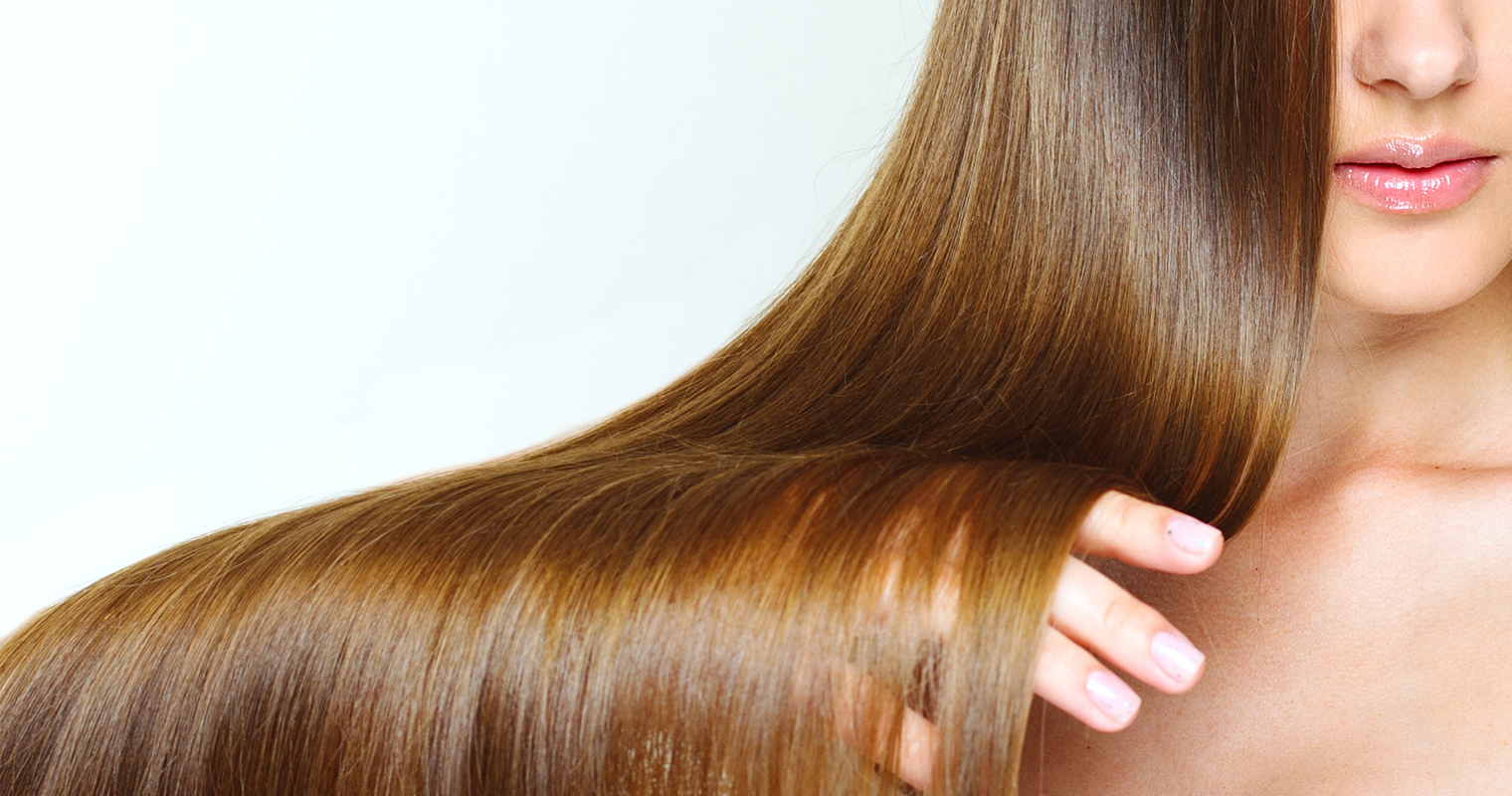
Natural remedy
Borage oil is used as a natural remedy for many health issues. It helps in relieving PMS symptoms, premenstrual stress, endometriosis, and menopausal symptoms and breast tenderness. It acts as a natural painkiller for menstrual cramps and pain.
Borage oil may also reduce stress and high blood pressure. A study in 30 university students found that those who consumed borage oil capsules regularly experienced a reduction in their stress vulnerability after 28 days.
Aromatherapy
Borage oil is also used in aromatherapy. It can be vaporized or inhaled but can also be used as a carrier oil for ultra-concentrated and more powerful essential oils. It blends well with other easily absorbed, thin oils like rosehip, thistle, jojoba, and sweet almond oil. It is often used in aromatherapy because of its uplifting and euphoric impact. It also helps ease depression and mood swings.
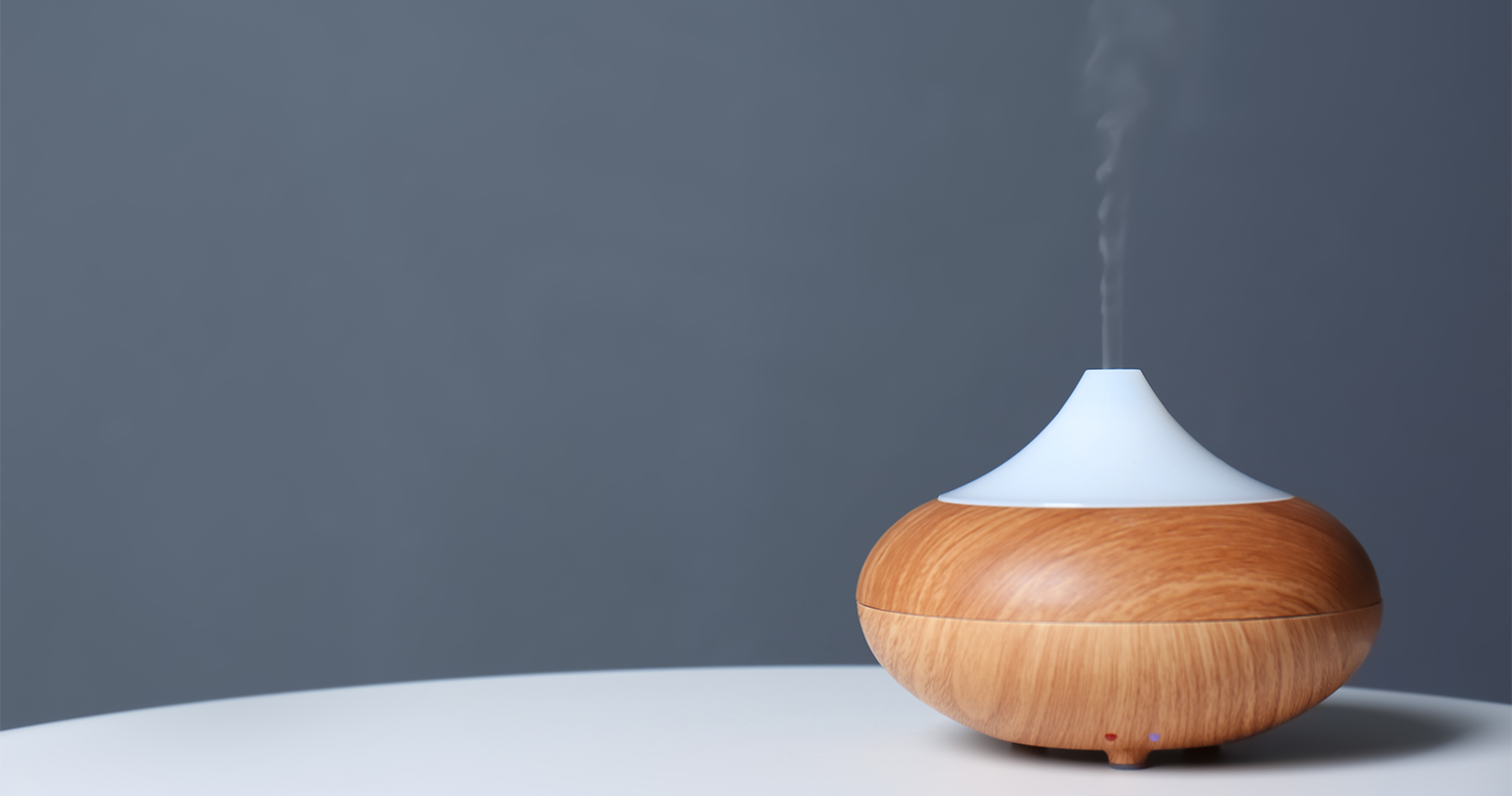
How to use borage oil for skin?
For skin-related remedies, borage oil is applied topically. It must be diluted with a carrier oil before application. The ratio to dilute is 12 drops per ounce of jojoba, almond, or olive oil. Apply a thin layer of this mixture to the affected area twice a day. Another way of using it is to coat or dab an undershirt in the oil and wearing it close to the skin. This way can be very helpful for applying oil to the areas on the back.
Clinical research suggests that the oil takes from several weeks to a few months to take full effect. However, it needs to be used consistently to get the desired results.
Patch Test:
It is prudent to perform a patch test before applying diluted borage oil to a larger area of the skin, especially an eczema rash. If no irritation or allergic reaction occurs on the test area within 48 hours, it is likely safe for widespread use.
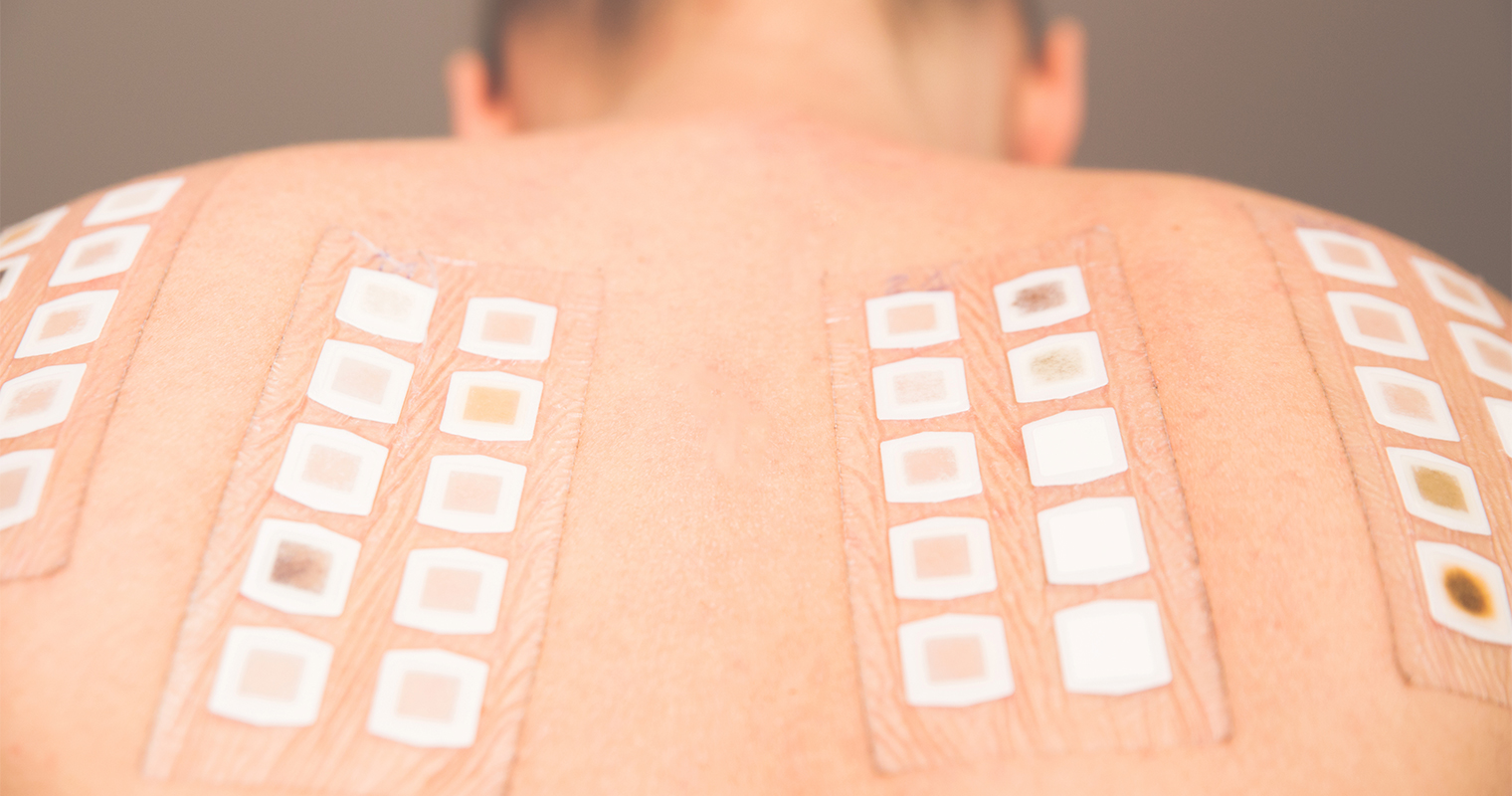
Dosage
There is no recommended dose of borage oil. It depends upon the medical history of a person and the reason he/she is using it for. In general, the dosage for healthy adults is 500 milligrams to three grams once a day. As for those who are taking this oil to relieve inflammation and pain from rheumatoid arthritis, the dose is higher—up to three grams. However, someone new to using borage oil or GLA supplements should consume a lower dose of around 500 milligrams.
The oil is usually used with evening primrose oil supplements to strengthen the anti-inflammatory and pain-relieving effects. Sometimes, it takes up to six months for borage oil’s pain relieving to become obvious.
A person who is deficient in vitamin C and other micronutrients like magnesium and zinc may not be able to absorb borage oil or other sources of GLA.
Safety of borage oil (side effects)
Some people face digestive issues when consuming borage oil in larger doses. They may experience diarrhea, belching, bloating, and soft tool. Moreover, there is a debate on whether certain components of borage oil are harmful to the liver. A small percentage of people experienced toxicity in the past. Now, all manufacturers are mandated to sell certified “hepatotoxic PA-free” borage oil to avoid even a trace of carcinogens.
Pregnant women should avoid using borage oil, as it has the potential for inducing labor. The oil can also act as a blood thinner, so anyone who is taking blood thinning medications like warfarin or aspirin should avoid it. Also, someone who experienced seizures in the past should consult a doctor before using the oil, as it may interact with the seizures medications.
If a person is suffering from liver disease or taking medications that affect the liver or can alter the ability of blood to clot, he/she should consult a physician before use. Moreover, borage use should be reported to the doctor before any surgery.
Borage oil also poses a risk of allergic reactions. If any of the allergic symptoms are experienced, consult a doctor immediately. The symptoms of allergic reaction include swelling, rash, hives, breathing difficulties, sudden fatigue, and dizziness.
When applying topically, borage oil should always be diluted; otherwise, it can cause skin irritation. As for oral use, never ingest borage oil or any essential oil. Always take oral supplements.
References:
https://www.encyclopedia.com/medicine/encyclopedias-almanacs-transcripts-and-maps/borage-oil
https://www.webmd.com/vitamins/ai/ingredientmono-596/borage
https://www.ncbi.nlm.nih.gov/pubmed/25312125
https://en.wikipedia.org/wiki/Borage
https://www.mindbodygreen.com/articles/borage-oil-gla-health-benefits
https://www.healthline.com/health/borage-oil
https://draxe.com/borage-oil/
https://www.ncbi.nlm.nih.gov/pubmed/20579590
https://www.sciencedirect.com/topics/medicine-and-dentistry/borage-oil
https://pdfs.semanticscholar.org/ca56/1a2dfac4b299d5a4ed5776a973946e1a18dc.pdf
https://www.sigmaaldrich.com/life-science/nutrition-research/learning-center/plant-profiler/borago-officinalis.html
https://herbalremedies.knoji.com/edible-flowers-borage-history-culinary-uses-and-nutrition/
https://www.drugs.com/npc/borage.html
https://articles.mercola.com/herbal-oils/borage-oil.aspx



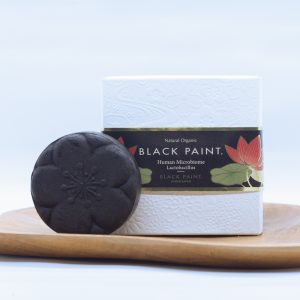 Step 1 : Black Paint Soap
Step 1 : Black Paint Soap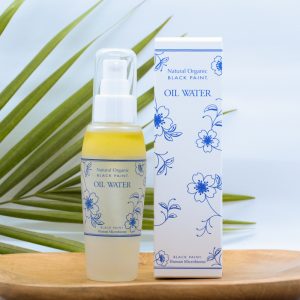 Step 2 : Oil Water
Step 2 : Oil Water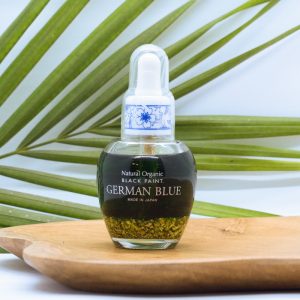 Step 3 : German Blue
Step 3 : German Blue



